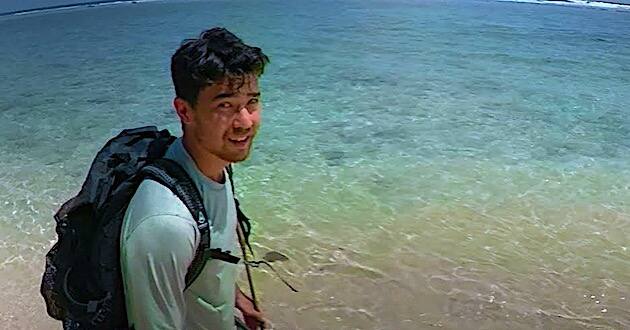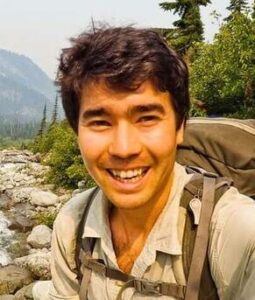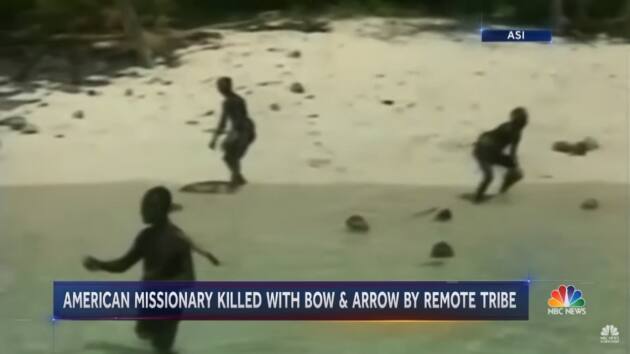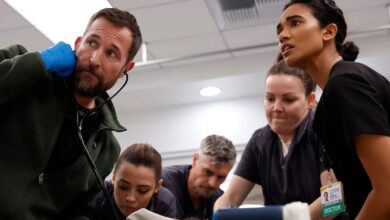National Geographic film “The Mission” tells story of murdered missionary

“The Mission,” a new documentary film from National Geographic, shares the story of John Chau, a 26-year-old missionary who was killed by the Sentinelese tribe after he traveled to North Sentinel Island, an isolated region of India, to share the gospel
Some people, both in the Christian and secular arenas, condemned Chau’s journey as a reckless one that reflected deep levels of ignorance, pride and cultural superiority. Others applauded his commitment to the Great Commission.

The documentary explores Chau’s personal writings, social media and diaries and features interviews and accounts from those who knew him best, including his inner circle, family and pastor. Woven throughout the film is a poignant letter from his father, psychiatrist Patrick Chau, who blames “extreme Christianity” for his son’s death.
“The Mission” seeks to present a nuanced narrative, giving a dimensional view of Chau’s decade-long preparation for missionary work. In 2017, he joined the missionary training group All Nations, which has a vision “to see Jesus worshiped by all the peoples of the earth,” and trained at the group’s North American hub in Kansas City.
The film has received favorable reviews for its authenticity and willingness to explore spiritual issues.
States Brett McCracken with the Gospel Coalition, “Part of why The Mission can be so variously interpreted is that filmmakers Amanda McBaine and Jesse Moss (Boys State), to their credit, attempt to tell the story in a balanced way, interviewing a broad spectrum of friends, family members, pastors, missionaries, and academics. Each person interviewed has a different take on the wisdom and worthiness of Chau’s ill-fated effort to bring the gospel to the unreached peoples of North Sentinel Island—one of the last remaining “untouched” tribes on the planet.”

“He was one of the most prepared young men I know, “said Mary Cho, the group’s international executive leader. “He had made many short-term mission trips to hard places like Iraq. He came to All Nations to get equipped on how to tell Jesus’ stories, because he knew the Sentinelese were an oral culture. You don’t want to preach to them; you want the art of telling stories, how to make disciples and how to start simple churches. He was highly prepared, and that is very well documented.”
McCracken writes that the film is well-made, compelling and uses voiceovers and animation to bring Chau’s words to life. But, the author says it can also be a bit frustrating at times but can ultimately “spur helpful discussions for Christian churches, students, and missionaries alike.”
The filmmakers attempt to navigate contrasting views with care, from those who admired Chau to those questioning his decisions. They sought to create a safe space for all voices, including those critical of missionary work and its implications of consent
Jamie Saint, grandson of missionary Nate Saint, said Chau’s story draws parallels to his own grandfather’s legacy. He underscored the importance of obedience to God’s calling, a lesson he learned from his grandfather’s endeavor to reach the Waodani tribe in Ecuador, which resulted in his and his colleagues’ martyrdom.
“God knew what he was doing then, and he knows what he’s doing today,” Saint said. “We don’t see the entirety of the masterpiece that he is writing. But we know the end of the story. And so, when we know the end of the story, we don’t have to be afraid of the chapters that come before.”
Before his death, Chau wrote in his diary that he was “doing this to establish the kingdom of Jesus on the island…Do not blame the natives if I am killed.”
The film is showing on Prime, YouTube, Vudu, Apple TV and Google Play.
–Dwight Widaman | Metro Voice








